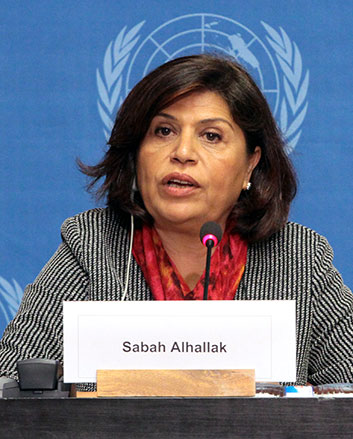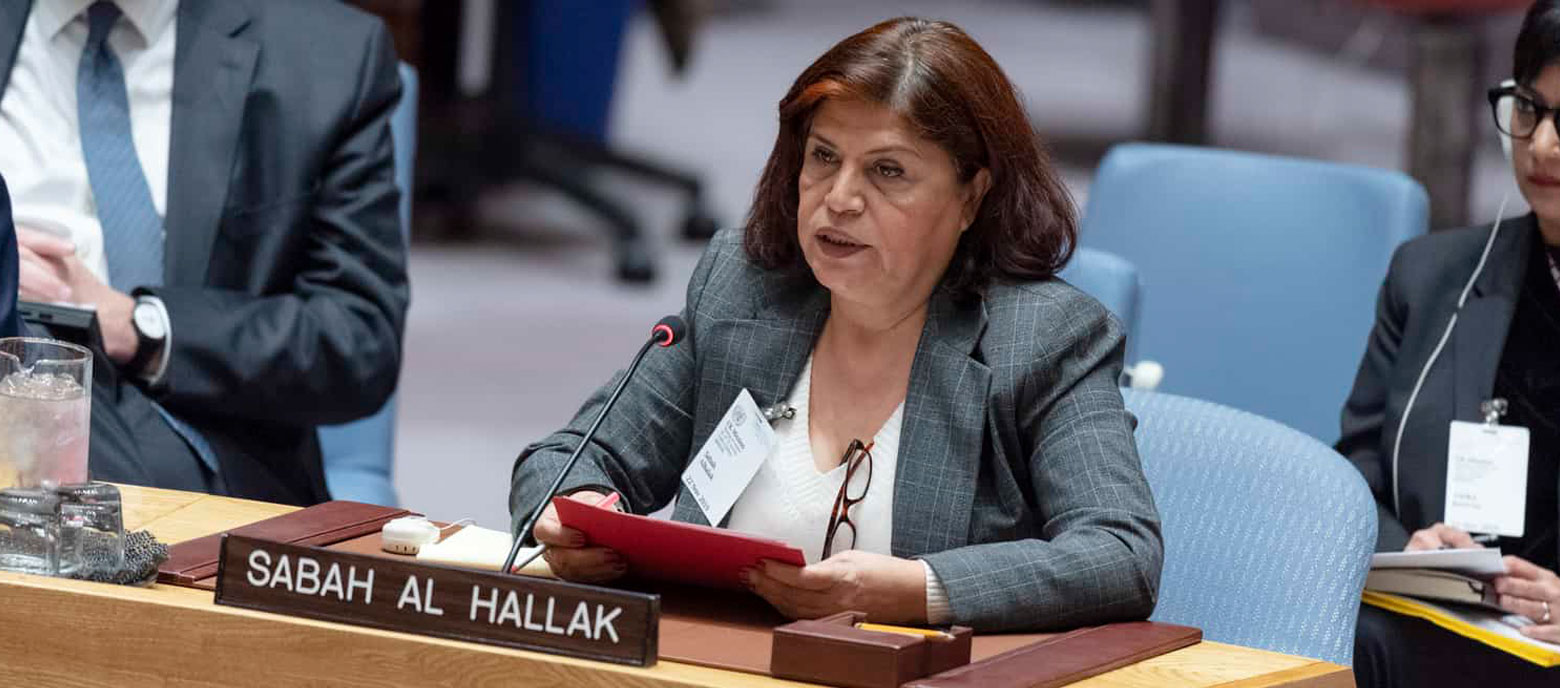Interview
‘Refugees must be able to speak for themselves’

Ms Al Hallak, you had to flee Syria in 2013. Where are you living now?
I initially went to Lebanon in 2013. However, several months ago I moved to Berlin, because my sister lives here – she came to Germany as a refugee in 2017. We both live alone, and we wanted to be closer together.
What were the circumstances that forced you to leave Syria, and how has your life been changed by the conflict there?
I wasn’t safe in Syria anymore. Anyone like me who campaigns for human rights and women’s rights inevitably comes into conflict with the regime. Fortunately, Syrian citizens living in areas controlled by the regime can simply travel to Lebanon with their ID card. I can’t compare my situation with that of other refugees. I was lucky enough to be able to continue my work for my organisation, the Syrian Women’s League, and I could even afford somewhere to live. Many refugees in Lebanon live in camps. That’s particularly true of women and children. And they’re often very poor.
You’re involved in supporting displaced Syrian women in various ways. What specifically are you working on currently?
I’m working as a volunteer to support Syrian refugee organisations here in Germany that are seeking to promote and strengthen women. I’m also advising a network of Syrian women lawyers in Syria, Turkey and European countries. This covers conceptual and strategic issues, and also very practical ones, for example what you have to watch for in funding applications. These lawyers work with Syrian women who are survivors of violence. Women who were in prison or were raped in the war.
What in general terms are the problems facing displaced Syrian women?
When we’re talking about Syrian women, we need to bear in mind that they come from a very traditional society. Many spent most of their time at home, and many married very young and have no education. For these women, life as a refugee is a major change. Particularly so for women who are travelling without a male relative, and suddenly have to take care of themselves and their children on their own. According to UN figures, they account for around 40 per cent of the refugees from Syria.
What support do displaced people need, particularly women and marginalised groups?
Apart from financial support, which is the most important issue initially, these groups mostly lack basic information on their rights – women’s rights and human rights, and also their rights as refugees. Other key factors are language skills, particularly English, and computer literacy, because these make it easier for them to get an education or a job.
You’re a member of the Action Network on Forced Displacement, which gives women activists like yourself a chance to share their experience. How helpful is this sort of forum?
We can learn a great deal in discussions with women’s organisations in different countries. For example, I’ve been to Bosnia twice and learned about the support provided to survivors of rape to enable them to testify against their abusers before the International Criminal Court. This will also play a major role in Syria, since rape is a gruesome reality in the war there. Another aspect is property rights. How can we ensure that women who have lost their husbands can get their houses back when they return after the war? In Syria, houses belong to the men; women currently have no legal claim to this property. In the Network, women’s rights groups from other countries report on how they have helped women get their property back. They say that women must insist on being properly involved in peace negotiations and constitutional discussions from the start in order to push through their demands.
How in your view can participation among displaced people be strengthened, and what role can initiatives led by refugees play?
Initiatives led by people with experience as refugees are enormously important. People must be able to speak for themselves, as they know their own needs best. This is why they should be the first point of contact for UN agencies and other aid organisations. For this to happen, refugees need to be aware of their rights and know how they can get involved. This is particularly true for women. They need special training and workshops to take on leadership roles in such initiatives.
What role can organisations like GIZ and international actors like UNHCR play in fostering participation?
They should actively support local organisations and groups that are headed by refugees, and pay particular attention to women’s needs. They’re doing this now to some extent, but there are a lot of good and committed groups that urgently need money and advice.
Global Action Network on Forced Displacement
The goal of the Action Network on Forced Displacement is to strengthen and support displaced women as agents of change. The network serves as a platform for change and promotes exchange between stakeholders. It also works to support women in realising their rights, harnessing opportunities and implementing activities for economic and political participation. The Action Network was founded in 2020 by the German Federal Ministry for Economic Cooperation and Development (BMZ).
June 2022
